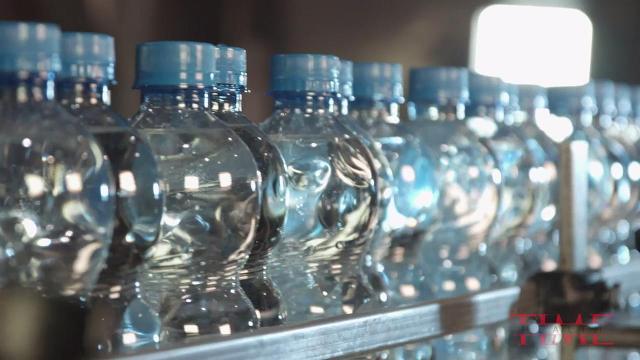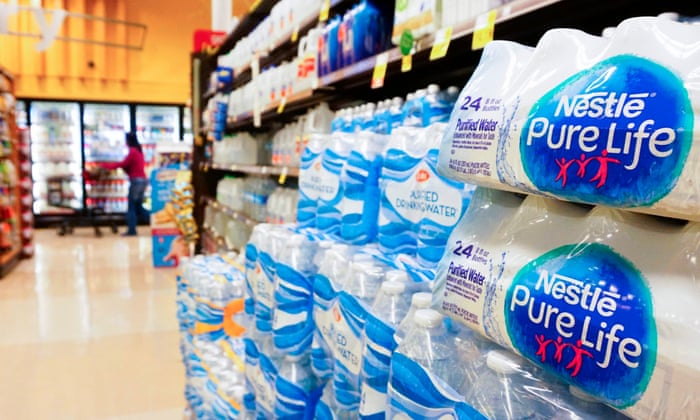Choose Tap Water
"With a lot of this microplastics research we're still at a ground level where we understand that this stuff is everywhere, but what we have less information on is what impact it has on human health and ecosystems."
"Generally, I can see how they've [researchers] obtained the results and it makes sense -- I mean I'm not totally surprised to find that water bottled in plastic contains plastic particles."
Dr. Michael Rennie, Canada Research Chair in Freshwater Ecology and Fisheries
"As part of our continuous review of new evidence on water quality, we will review the very scarce available evidence with the objective of identifying evidence gaps, and establishing a research agenda to inform a more thorough risk assessment."
World Health Organization
"These results indicate the main source of the microplastic particulate [in bottled water] is different; the data seems to suggest that at least some of the plastic contamination may be coming from the industrial process of bottling the water itself."
Study, research team at State University of New York Fredonia
"When you mould [a water bottle] you probably can't mould it without having plastic fragments coming off. We have this idea that plastic is clean but it's an industrial process that manufactures these products so how we can even think it's clean is shocking to me."
"The vast majority of us, especially those of us in developed nations like Canada, the United States and Europe have access to clean, well regulated water which is much cleaner than bottled water."
"You want to be drinking tap water."
Dr. Sherri Mason, team leader, study, State University of New York
| Prof. Sherri Mason carried out the laboratory work at the State University of New York (SUNY), on behalf of Orb Media. (Dave MacIntosh/CBC) |
"Other contaminants can be absorbed by plastic kind of like a sponge, so even if a microplastic particle passes through your system, it might still be releasing the absorbed contaminants into you and the environment."This new study, not yet published -- which concludes that the process of industrial bottling itself may be responsible for the New York State University's team finding that bottled drinking water is frequently contaminated with small particles of plastic -- analyzed 259 bottles commonly found in nine countries, to discover that 93 percent of the bottles were found to be contaminated with the presence of microplastics.
Dr. Jesse Vermaire, professor of environmental science, Carleton University, Ottawa
A global investigation into bottled water conducted on behalf of Orb Media resulted in this research and its findings. No particular regulations currently exist with respect to quantity of health-permissible microplastics in bottled water in Canada, in the United States, or in Europe. The reason appears to be that not enough scientific evidence exists for guidelines as to how much plastic exposure can be harmful to human health.
Any plastic less than five millimetres in size is considered to be a microplastic. Dr. Mason explains that this definition is being further defined to incorporate minuscule pieces less than one millimetre in size. An average of 325 microplastic particles per litre of water, less than 0.10 in size (roughly the width of human hair) was found by her research team.
The team discovered that an average of 10.4 microplastic particles greater than 0.10 millimetres per litre of bottled water prevailed, a contaminating presence easily double the average that can be found in tap water, according to a previous study.
 |
| Microplastics found in major brands of bottled water. Time |
The actual process of bottling the water was responsible for the presence of microplastics.
In addition to which Dr. Mason noted that those ubiquitous microbeads -- perfectly round, minute bits of plastic -- were not found in the bottled water. A ban on production of microbeads will be taking effect this year as they are being phased out of Canadian products. Eleven water bottle brands were tested in the study: Aquafina, Dasani, Evian, Nestle Pure Life, San Pellegrino, Aqua (Indonesia), Bisleri (India), Epoura (Mexico), Geroisteiner (Germany) Minolta (Brazil, and Wahaha (China).
In responding to a request for comment on the study findings, Dasani, Evian, Nestle, San Pellegrino, Aquafine, Aqua and Gerolsteiner all gave boilerplate responses, emphasizing that they practise high quality standards and are committed to continuing to ensure they produce safe products.
 |
| A woman walks past an aisle with bottled water at a supermarket in Los Angeles. Tiny pieces of plastic have been found in over 90% of the world’s most popular bottled water brands, by a study in the US. Photograph: Frederic J. Brown/AFP/Getty Images |
Labels: Bottled Water, Environment, Microplastics, Nature

0 Comments:
Post a Comment
<< Home